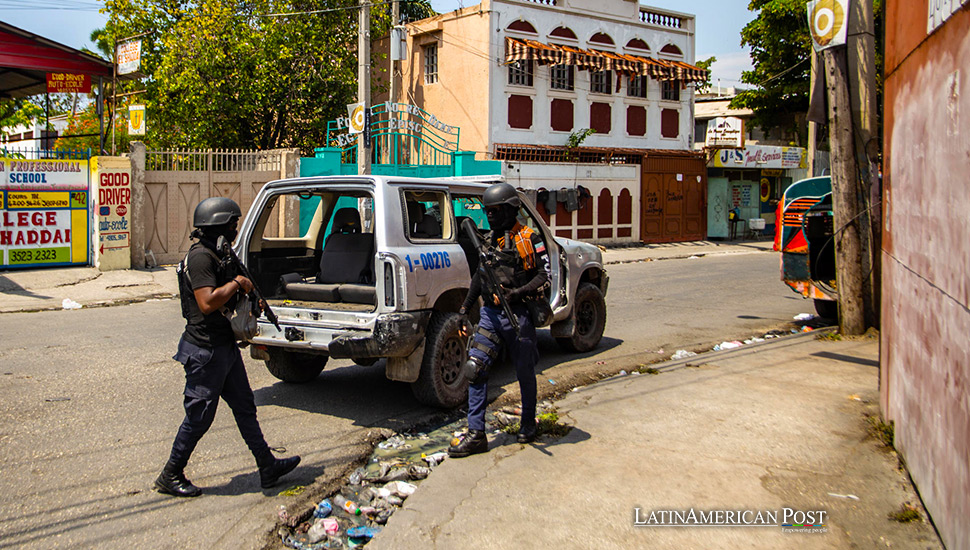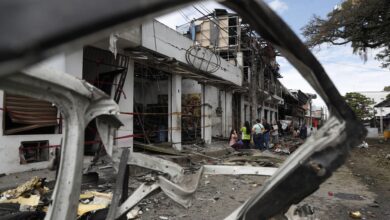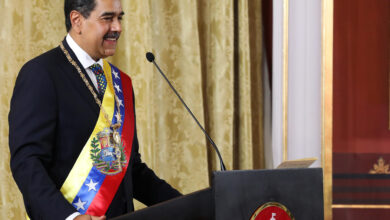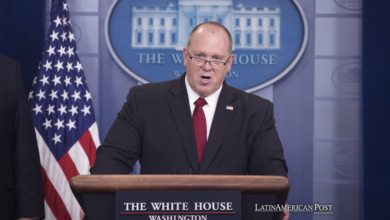The Power Struggle Against Gang Leader ‘Barbecue’ in Haiti

In Haiti, a former cop turned gang leader, a young criminal rapper, and a recently deported rebel-turned-politician fight for power amidst escalating violence. Their stories reflect a disturbing regional trend—the rise of brutal gangs destabilizing Latin American nations.
Gangs and Power Dynamics in Haiti
In Haiti, a former cop turned gang leader, a young criminal rapper, and a recently deported rebel-turned-politician fight for power amidst escalating violence. Their stories reflect a disturbing regional trend—the rise of brutal gangs destabilizing Latin American nations. From the favelas of Brazil to the prisons of El Salvador, gangs wield immense power in Latin America. Haiti’s escalating crisis is a chilling reminder of this phenomenon. These gangs, often fueled by the drug trade, exploit poverty, weak institutions, and political instability, filling the power vacuum left by ineffective governments.
The recent power struggles in Haiti offer a disturbing case study of gang violence. Figures like Jimmy “Barbecue” Chérizier, a former cop turned ruthless gang leader, manipulate popular discontent for their gain. He presents himself as a champion of people with low incomes while terrorizing them. His G9 alliance, through blockades of vital supplies, fuels a humanitarian crisis. Barbecue’s self-serving rhetoric echoes that of gang leaders across the region, who exploit social grievances to justify their reign of terror.
The Face of Hyper-Violent Gang Leadership
Izo, another gangster vying for control, epitomizes a new generation of hyper-violent gang leaders. Flaunting wealth acquired through kidnappings, drug trafficking, and arms smuggling, Izo cultivates a social media persona aimed at recruitment and intimidation. His tactics mirror those used by gangs, like Mexico’s cartels, who use platforms to glorify violence and attract followers.
The recently deported Guy Philippe adds another dimension to the picture: ex-rebel, disgraced politician, convicted drug trafficker. His audacious presidential ambitions are sadly not uncommon. Latin America has a history of former rebels or military men pivoting to organized crime, further blurring the lines between political and criminal power. His return to Haiti, fresh out of a US prison, has injected further instability into the volatile mix, demonstrating the permeability of criminal networks and their reach across borders.
Regional Context and Challenges
Haiti’s gang-fueled instability is tragically part of a broader regional crisis. The neighboring Dominican Republic faces the threat of spillover violence and human trafficking. El Salvador’s draconian crackdown on its MS-13 and Barrio 18 gangs draws attention to the desperation some governments feel, even at the cost of human rights. Brazil’s megacities are battlegrounds between powerful gangs like the Primeiro Comando da Capital (PCC), with international organized crime connections. These examples highlight the complex nature of gang violence, demanding multi-pronged and often transnational responses.
Rampant inequality and lack of opportunities provide fertile recruiting grounds for gangs. Latin America’s informal economies offer the illusion of wealth to those without job prospects. The allure of money and power, especially for youth, is seductive amidst widespread disillusionment with traditional institutions. Young men, in particular, are vulnerable to being lured into gangs as an escape from dire economic situations, offering them a twisted sense of belonging and an avenue to obtain status and financial gain.
Gangs thrive where corruption erodes the rule of law. Bribed cops and politicians serve as de-facto gang allies in certain countries. Judicial systems are overwhelmed, and police forces are often ill-equipped, outgunned, or complicit. This environment allows gangs to operate with impunity, controlling vast territories, terrorizing entire communities, and infiltrating state structures.
Addressing Latin America’s gang crisis requires a multifaceted approach. Economic development policies creating genuine opportunities are vital. Strengthening institutions and fighting corruption are crucial to regaining citizens’ trust. However, targeted policing and intelligence operations are necessary to disrupt violent gangs. Regional cooperation in law enforcement becomes increasingly essential as gangs often transcend borders. Programs focusing on gang prevention, targeting at-risk youth with alternatives and mentorship, are also critical to curbing the appeal of criminal gangs in the long term.
Root Causes and Vulnerabilities
Ultimately, it’s the citizens trapped in gang-infested zones who pay the highest price. Extortion, forced displacement, and rampant violence shatter lives. Gangs often engage in turf wars, with civilians caught in the crossfire. In some cases, gangs impose informal taxation on communities, draining the already meager resources of impoverished citizens—the fear they instill limits movement and commerce, further compounding the economic desperation. Haiti’s recent paralysis is a stark reminder that without decisive action, entire nations can be held hostage by armed groups.
Also read: Haiti’s Ariel Henry’s Tumultuous Tenure
Understanding gangs like those in Haiti is vital because they represent a potent destabilizing force in Latin America. Their rise is a symptom of deeper issues, from inequality to institutional decay. The region’s future hinges on decisive action that includes both targeted crackdowns on gangs and long-term solutions addressing the root causes of this epidemic. Left unchecked, these gangs erode not only safety but democracy itself, creating a vicious cycle that threatens the well-being of millions across the region.




